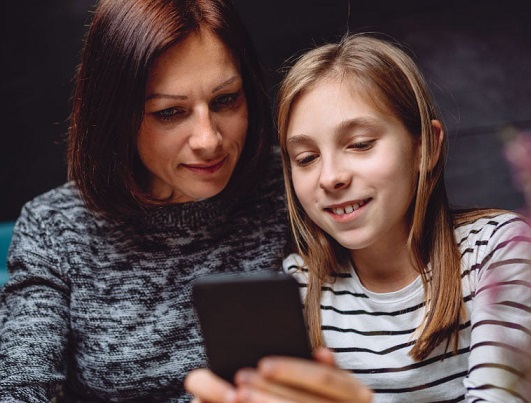Teaching children about responsible use of social media
In the digital age, social media has become an integral part of our lives, and it’s no different for children.
Teaching them about responsible use of social media is essential in helping them navigate this complex virtual world.
With guidance and education, children can harness the positive aspects of social media while learning to avoid its potential pitfalls.
Understanding the Importance of Responsible Social Media Use
- Digital Citizenship: Teaching children about responsible social media use is a fundamental aspect of digital citizenship. Just as we educate them about good behavior in the physical world, we must do the same in the online realm.
- Safety and Privacy: Children need to understand the importance of protecting their personal information and privacy online to safeguard themselves from cyber bullying, scams, and identity theft.
- Media Literacy: Teaching children to critically evaluate the information they encounter on social media helps them distinguish between reliable and unreliable sources.
- Healthy Relationships: Social media can impact children’s friendships and relationships. Teaching them how to maintain healthy and respectful interactions online is vital.
Tips for Teaching Responsible Social Media Use
- Start Early: Begin conversations about social media and digital etiquette at an age-appropriate level. Gradually introduce them to social media platforms as they mature.
- Open Communication: Create a safe space where children feel comfortable discussing their online experiences, both positive and negative. Encourage them to share concerns.
- Set Boundaries: Establish rules for screen time, the use of specific apps, and privacy settings. Make sure children understand the importance of these boundaries.
- Teach Critical Thinking: Help children question the content they encounter. Discuss the potential biases, credibility, and motives behind the information they see.
- Respect for Others: Emphasize the importance of kindness and empathy in online interactions. Teach children to think before they post or comment, as their words can have a real impact on others.
- Online Safety: Educate children about the risks of sharing personal information, meeting strangers online, or clicking on suspicious links. Encourage them to report any inappropriate or concerning content.
- Model Responsible Behavior: Children learn by example. Demonstrate responsible social media use by being mindful of your own online behavior and interactions.
- Discuss Consequences: Explain the potential consequences of irresponsible social media use, such as damaging their reputation, harming relationships, or legal implications.
Positive Aspects of Social Media
While teaching responsible use, it’s important to highlight the positive aspects of social media, such as:
- Learning Opportunities: Social media can provide access to educational resources, news, and communities of shared interests.
- Networking: It can help children connect with friends and family, especially if they are separated by distance.
- Creativity and Self-Expression: Encourage children to use social media as a platform for sharing their talents, interests, and creativity in a positive way.
Conclusion
Teaching children about responsible use of social media is a critical component of their digital education.
By providing guidance, setting boundaries, and fostering open communication, parents and educators can help children navigate the virtual world safely and responsibly.
Equipped with these skills, children can harness the benefits of social media while avoiding its potential pitfalls, ensuring a positive and enriching online experience.

